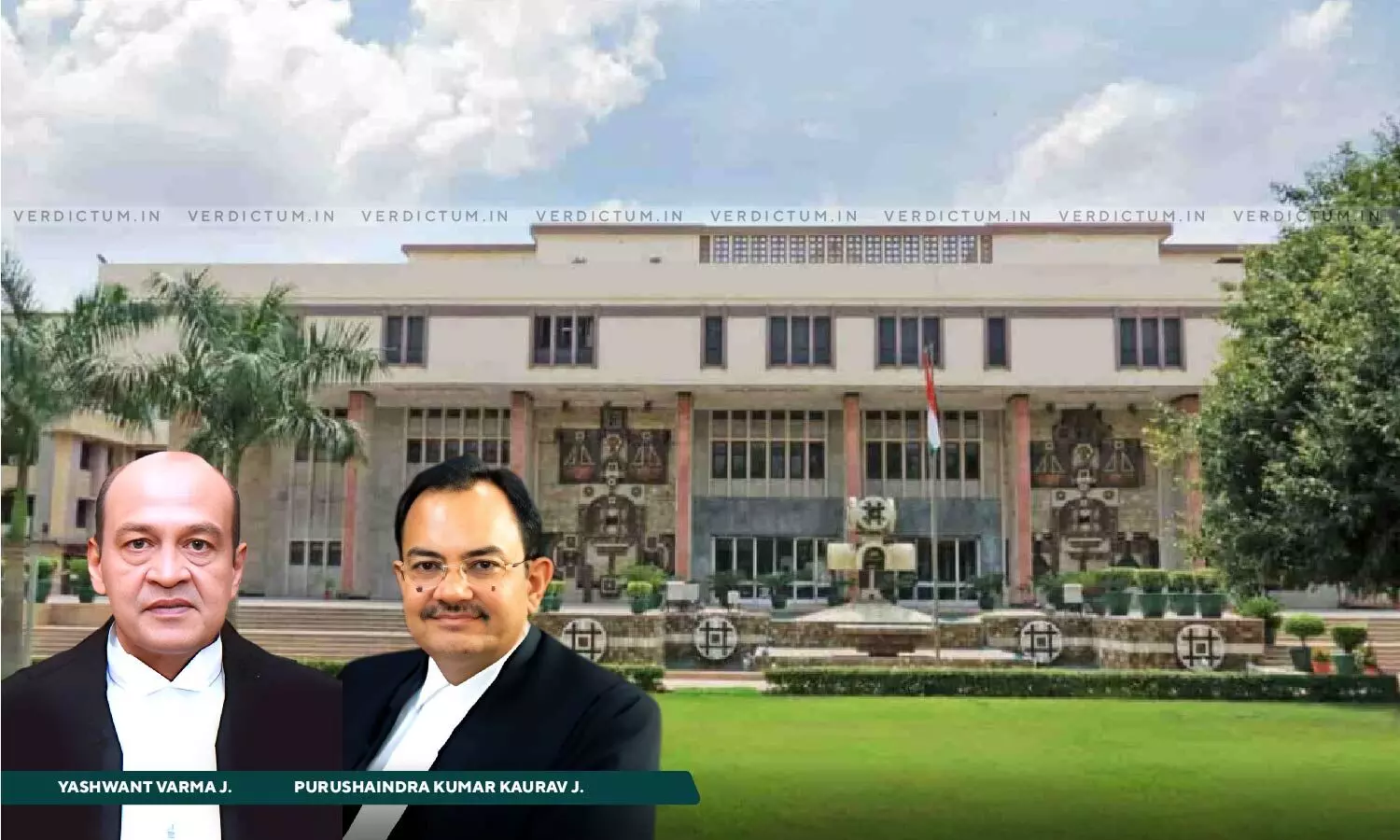
Expression "Received" U/S 153(3) Of Income Tax Act Won't Strictly Mean That Certified Copy Of ITAT's Order Is Supplied To Authority Via Appropriate Mechanism: Delhi HC
 |
|The Delhi High Court observed that the expression "received" under Section 153(3) of the Income Tax Act, 1961 (ITA) will not strictly mean that a certified copy of order of the Income Tax Appellate Tribunal (ITAT) is supplied to the authority via an appropriate mechanism.
The Court directed the Income Tax Department (ITD) to remove the demands of Rs. 34.70 crores and penalty of Rs. 33.98 crores from the portal of Income Tax Business Application (ITBA) on account that it failed to comply with an order of the ITAT.
The Court was dealing with a writ petition preferred by a company named Sunshine Capital Limited, seeking few reliefs.
A Division Bench of Justice Yashwant Varma and Justice Purushaindra Kumar Kaurav held, "It can, therefore, be safely concluded that the expression “received” employed in Section 153(3) of the Act would not strictly mean that a certified copy of the order of the ITAT, in the given facts and circumstances, ought to have been necessarily supplied to the concerned authority through an appropriate mechanism devised by the respondents."
The Bench said that there is no force in the argument put forth by the respondents that the order was not received by the concerned authority through appropriate channel.
Advocate Amol Sinha represented the petitioner while Advocate Sanjay Kumar represented the respondents.
Facts of the Case -
The petitioner company had filed its Income Tax Return (ITR) for the Assessment Year (AY) 2008-09, declaring a total income of Rs. 19,92,354/- which was processed by the respondents/authorities under Section 143(1) of the Income Tax Act, 1961 (ITA). The ITR of the petitioner was picked up for scrutiny and an assessment order was passed by the authorities on December 31, 2010, whereby, the total income of the petitioner was assessed to be Rs. 1,00,42,66,390/- for the concerned AY. Additionally, the Deputy Commissioner of Income Tax (DCIT) had seized two properties of the petitioner. Aggrieved by the said assessment order, the petitioner preferred an appeal before the Commissioner of Income Tax (Appeal) [CIT(A)], challenging the additions which were made by the respondents.
The CIT(A), vide an order, partly allowed the appeal in favour of the petitioner, whereby, out of total disallowance of Rs. 22,74,040/-, disallowance only to the tune of Rs. 5,27,321/- was upheld. However, the petitioner assailed the order of the CIT(A) before the ITAT, which was decided in 2018, wherein, the matter was remanded back to the file of the Assessing Officer (AO) for the purpose of fresh assessment. Also, by virtue of the said order, the demand being reflected on the ITBA portal in the quantum was deleted by the ITAT. DCIT passed a penalty order but subsequently, the appeal against the said order was dismissed by CIT(A). Due to inaction of the respondents to rectify the error regarding reflection of demand on the portal, the petitioner approached the High Court.
The High Court in the above context of the case noted, “In any case, as decided in Odeon Buildwell (supra), the ground raised by the respondents is only an internal arrangement of the Department and the same cannot be stretched to mean that it is a valid ground for the extension of the limitation period. The underlying rationale of the Legislature behind the enactment of Section 153(3) of the Act and setting the limitation therein, cannot be envisaged to expand the time limit for passing of a fresh assessment. Rather, the said provision entails a strict adherence to the time period within which the remand order in the present case should have been complied with by the respondents.”
The Court while taking into consideration the ITAT’s response that the concerned order was sent in 2018, said that the Department ought to have passed the order to give the appeal effect within twelve months from then, however, the same has not been done by the Department till date.
The Court ordered, “… since the respondents have failed to comply with the order of the ITAT in passing a fresh assessment order within the stipulated time, the instant writ petition is allowed … The respondents shall ensure that the demands of quantum amounting to ₹34.70 Crores and penalty amounting to ₹33.98 Crores being reflected in the ITBA portal shall be removed within two weeks of the passing of this judgment.”
The Court said that the amount of Rs. 25,44,671/- lying with the respondents be refunded to the petitioner along with applicable interest as per law.
"The properties of the petitioner namely, Vishal Infrabuild Limited situated at CTS No. 5853, I Floor, Emer Corner, Maratha Colony, Congress Road, Belgaum, Karnataka-590006 and DLF Limited, Flat No. 2701, R Tower, Moti Nagar, New Delhi be released within two weeks of the passing of this judgment”, it further directed.
The Court also ordered that the bank accounts be defreezed by the respondents within two weeks.
Accordingly, the High Court disposed of the petition.
Cause Title- Sunshine Capital Limited v. Deputy Commissioner of Income Tax-Circle-9(1), Delhi & Ors. (Neutral Citation: 2024:DHC:3061-DB)
Appearance:
Petitioner: Advocates Amol Sinha and Kshitiz Garg.
Respondents: Advocates Sanjay Kumar, Easha, and Hemlata Rawat.